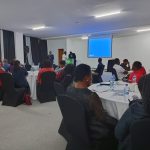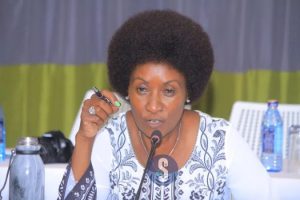The UK government is likely to absorb Sh2 billion in assets from Liverpool-based SPS Sportsoft Limited, a gambling software, and support services business that shares shareholders with SportPesa.
Kenya-based Pevans East Africa Limited, the company’s largest client, suspended operations in 2019 when the government refused to renew its operating permit, claiming billions of shillings in unpaid taxes.
Kenyan and Bulgarian business people are among the joint shareholders of SPS, its parent company Sportpesa Global Holdings Limited (SPGHL), and Pevans, which used to operate under the SportPesa name.
“The Registrar of Companies gives notice that, unless a cause is shown to the contrary, the company will be struck off the register and dissolved not less than two months from the date shown above,” SPS said a notice dated September 14, 2021.
“Upon the company’s dissolution, all property and rights vested in, or held in trust for, the company are deemed to be bona vacantia, and will belong to the Crown.”
Ownerless assets, including those of dissolved businesses and estates of persons who die without a will or blood relations, are referred to as bona vacantia. The UK government takes over such assets. A business in the United Kingdom can be dissolved by its creditors or if it fails to meet its legal responsibilities. SPS did not explain why it was liquidated. The decision comes after it experienced a significant loss of business in Kenya due to shareholder squabbles.
Pevans was its largest customer, paying the Liverpool-based multinational £20.6 million (Sh3.1 billion) in the nine months ended December 2018, accounting for 96% of the total revenue of £21.6 million (Sh3.2 billion) in the period.
SPS clients include SPGHL’s subsidiaries trading under the SportPesa brand in Tanzania and South Africa. SPS ended the period with total assets of £13.2 million (Sh2 billion) that will be surrendered to the UK government, which says it does not inherit liabilities of dissolved firms.
“Property, cash, and any other assets owned by a company when it is dissolved automatically pass to the Crown. This is because the law says this happens. Liabilities of a company do not pass to the Crown on dissolution: they are normally extinguished,” the UK government says on the bona vacantia process.
SPS’s creditors stand to lose a total of £8.5 million (Sh1.2 billion) due to them during the review period. The firm was supposed to publish its 2019 financial statements by December of last year, but it missed the deadline and will now be liquidated without providing its updated financial statements.
Sportpesa and Kenyan shareholders
Its demise is another setback for its shareholders, who include Kenyan entrepreneurs Paul Ndung’u and Asenath Maina, who clashed with their Bulgarian counterparts over control and administration of the SportPesa businesses. Pevans’ operating license was revoked in July 2019 due to unpaid taxes and penalties totaling Sh95 billion, according to the Kenya Revenue Authority (KRA).
The company last reported revenues of nearly Sh150 billion in 2018 in what made it the second-largest firm by revenue in Kenya after Safaricom.
The Bulgarian investors and Ronald Karauri, a Kenyan who is Pevans’ chief executive and also a shareholder in the SportPesa entities, later re-entered the local gaming business under a new company called Milestone Games Limited to which they transferred the SportPesa trade name.
The valuable SportPesa brand was transferred from Pevans to SPGHL for £100,000 (Sh15.1 million) and then to Milestone in transactions that started on June 2, 2020. Mr Karauri signed the deed of assignment on behalf of Pevans while Kalina Karadzhova acted for SPGHL. Mr Karauri would later emerge with a controlling 54.4 percent stake in Milestone in the roundabout deals.
Mr Ndung’u and Mrs Maina were meanwhile removed from the boards of the SportPesa entities where their stakes were also diluted. Recent filings by SPGHL in the UK shows that the stake of Mr Ndung’u has dropped to 1.54 percent, down from 17 percent when the multinational was incorporated in 2017.
Mrs Maina’s ownership on the other hand has declined to 1.9 percent from 21 percent over the same period. The ownership of other shareholders, including Mr Karauri and a group of Bulgarians, has meanwhile increased in a pattern that drew protests from Mr Ndung’u.
The ownership changes came through a rights issue, conducted between November 2019 and last year, in which some of the owners were offered an opportunity to buy more shares at deeply discounted rates. The dilution saw Mr Ndung’u and Mrs Maina lose a combined Sh1.1 billion as their claims on SPGHL’s net assets declined.
The Kenyan investors are being squeezed out after SPGHL conducted the rights issue in which the other shareholders acquired a total of one million additional shares in two transactions at a price of £1 (Sh151.8) per share. This was equivalent to 0.45 percent of the company’s book value per share of £218.8 (Sh33,234). Via Source






















